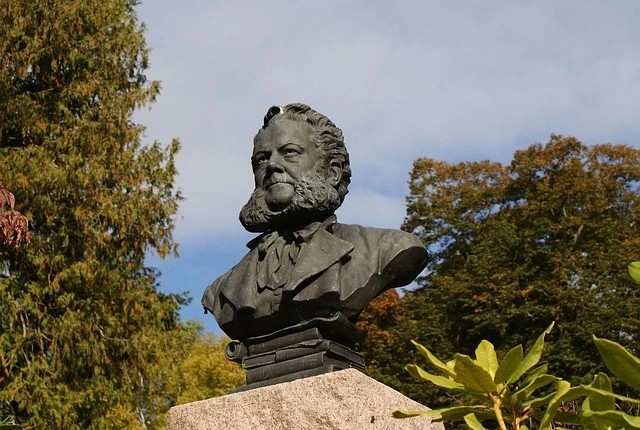This blog post highlights the characteristics of Shakespearean tragedy, a genre of drama that developed out of great tragic plays by William Shakespeare in the late 16th and early 17th centuries. Shakespearean tragedy is distinguished from other forms of tragedy by its distinctive features, such as the tragic hero, the tragic flaw, the role of fate and chance, the use of soliloquies and dramatic irony, the presence of supernatural elements, and the cathartic effect on the audience.
Characteristics of Shakespearean Tragedy
The tragic hero: The tragic hero is the main character of a Shakespearean tragedy, who is usually a person of high rank or noble birth, such as a king, a prince, or a general. The tragic hero has a great potential for greatness but also a fatal flaw or weakness that leads to his downfall. The tragic hero is often admired and respected by other characters and the audience, but he also arouses pity and fear as he suffers and dies. The tragic hero is usually involved in a conflict with an antagonist, who may be another character, a group of characters, or a force of nature or society. The tragic hero also faces an internal conflict between his desires and values, the demands or expectations of others, and his role. A combination of his flaws usually causes the tragic hero’s downfall, the actions of the antagonist, and the intervention of fate or chance. Macbeth is a brave and loyal soldier who is also ambitious and easily tempted by the witches’ prophecies. His flaw causes him to murder his king and his friend and to become a tyrant who is hated and feared by his subjects. His antagonist is Macduff, who leads a rebellion against him and kills him in a duel. The witches also influence his fate, predict his rise and fall, and Banquo’s ghost haunts him after he orders his murder.
The tragic flaw: The tragic flaw or hamartia is the error or mistake the tragic hero makes, either in action or judgment, that triggers his downfall. The tragic flaw is often related to a moral defect or a personality trait that is excessive or imbalanced. The tragic flaw may result from ignorance, pride, jealousy, ambition, passion, or other human weakness. The tragic flaw may also result from external pressure or temptation that seduces the tragic hero to commit a crime or violate a moral code. The tragic flaw usually leads to consequences that escalate the conflict and increase the suffering of the tragic hero and others. Othello is a noble and respected Moorish general, but also jealous and insecure about his wife, Desdemona. His flaw causes him to trust the villain Iago, who manipulates him into believing that Desdemona is unfaithful. His flaw leads him to kill Desdemona and then himself. The tragic flaw is the major cause of hero’s downfall therefore Shakespearean tragedy is also called tragedy of character.
The role of fate: The role of fate and chance is another characteristic of Shakespearean tragedy, which suggests that human beings are subject to forces beyond their control that shape their destinies. Fate and chance often take the form of prophecies, omens, accidents, coincidences, or supernatural interventions that influence the actions and outcomes of the characters. Fate and chance often create a sense of inevitability or irony in the tragedy, as the characters try to avoid or change their destinies but end up fulfilling them. Fate and chance also contrast appearance and reality, as the characters are deceived or mistaken about their situations or fail to see the consequences of their actions. Romeo and Juliet are the young lovers from rival families. The prologue foreshadows Their fate, which calls them “star-crossed lovers”. Their fate is also affected by chance events, such as Romeo’s banishment, Friar Laurence’s delayed message, and their untimely deaths.
The use of soliloquies: The use of soliloquies is another feature of Shakespearean tragedy, which enhances the psychological depth and emotional impact of the drama. Soliloquies are speeches a character delivers alone on stage, revealing their thoughts and feelings to the audience. Soliloquies allow the audience to understand the motives and conflicts of the characters, as well as their inner struggles and dilemmas. Soliloquies also show the development or change of the characters as they reflect on their past actions, present situations, and future plans. Soliloquies also express the emotions and passions of the characters as they reveal their hopes, fears, love, hate, guilt, or remorse. Soliloquies also connect the characters and the audience, as they invite the audience to sympathize with or judge the characters or share their secrets or questions. Hamlet is the prince of Denmark and the son of the murdered king. His soliloquies reveal his grief, anger, indecision, madness, and desire for revenge. His most famous soliloquy is “To be or not to be”, in which he contemplates suicide and the meaning of life.
Dramatic irony: Dramatic irony is a situation in which the audience knows more than the characters on stage, creating suspense and irony in the drama. Dramatic irony occurs when the characters are unaware of something the audience knows or when they say or do something with a different meaning or implication than they intend. Dramatic irony also contrasts appearance and reality, as the characters are deceived or mistaken by others or themselves. Dramatic irony also creates a sense of pity and fear in the audience as they anticipate the tragic outcome of the actions or words of the characters. In Julius Caesar, Brutus is a noble Roman senator and a friend of Caesar. His dramatic irony occurs when he joins the conspiracy to assassinate Caesar for the sake of Rome’s freedom, but he does not know that Caesar has named him as his heir in his will. His dramatic irony also occurs when he delivers a speech to justify his act to the Roman people, but he does not know Antony will turn them against him with his speech.
Supernatural elements: The presence of supernatural elements is another characteristic of Shakespearean tragedy, which adds an element of mystery and horror to the drama. Supernatural elements include ghosts, witches, apparitions, visions, prophecies, oracles, and curses that appear or influence the characters and events of the tragedy. Supernatural elements often represent the forces of fate or chance or the manifestation of the characters’ fears or guilt. Supernatural elements also create a sense of awe and wonder in the audience as they challenge their rationality and imagination. Supernatural elements also contrast the natural and the unnatural, the human and the divine, the normal and the abnormal. For example, the tragic hero in King Lear is Lear, an old king who divides his kingdom among his three daughters based on their flattery. His supernatural element It is the storm that rages on the heath, where he wanders madly after being betrayed by his daughters. The storm symbolizes his inner turmoil, loss of reason, and divine punishment.
The cathartic effect: The cathartic effect on the audience is another characteristic of Shakespearean tragedy, which refers to the emotional release or purification the audience experiences after watching the tragedy. The cathartic effect is achieved by arousing pity and fear in the audience as they witness the suffering and downfall of the tragic hero and by resolving the conflict and restoring order at the end of the play. The cathartic effect allows the audience to identify with the tragic hero, learn from his mistakes, and feel relieved and enlightened by the drama’s outcome. The cathartic effect also serves a moral and social function, as it reinforces the values and norms of society and warns against the consequences of violating them. Antony and Cleopatra are the lovers and rulers of Egypt and enemies of Rome. Their cathartic effect occurs when they commit suicide after being defeated by Octavius Caesar. Their deaths evoke pity and admiration in the audience as they die nobly and passionately for their love and their honour. Their deaths also restored peace and order in Rome, as Octavius became the sole emperor.
These are some of the main characteristics of Shakespearean tragedy, which make it a unique and powerful form of drama that has influenced many writers and artists throughout history. Shakespearean tragedy reflects human nature and the human condition as it explores the themes of love, ambition, power, loyalty, betrayal, revenge, guilt, and justice. Shakespearean tragedy is also a celebration of language and poetry, as it employs various literary devices, such as metaphors, similes, imagery, symbols, allusions, puns, irony, and rhyme. Shakespearean tragedy is a masterpiece of art and literature that challenges and enriches the audience’s mind and heart.





Leave a comment